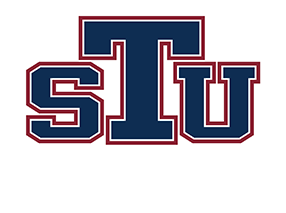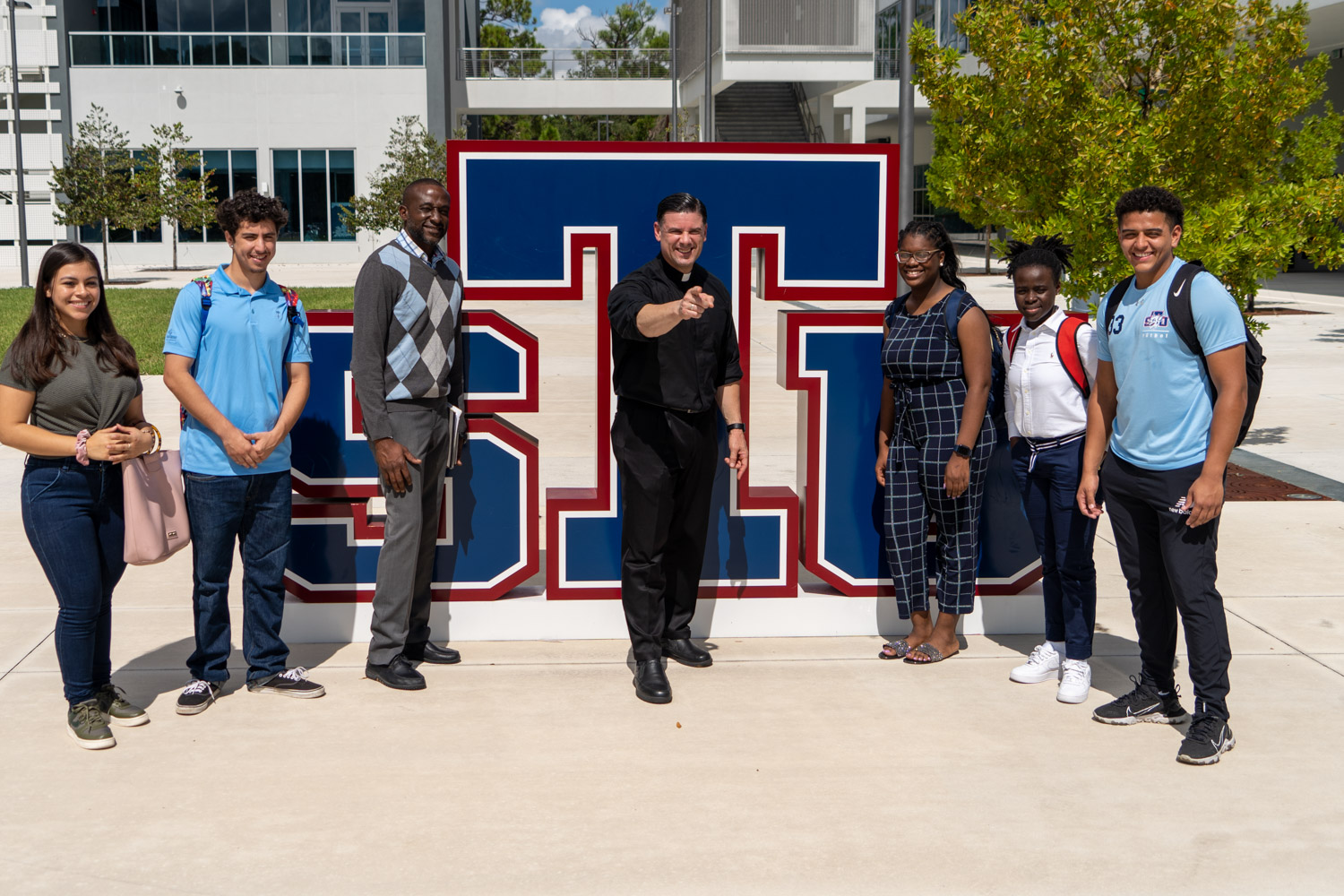Doctoral Degree in Theology and Leadership (Ph.D.)
Leadership:
Rev. Rafael Capó
Vice President for Mission and Ministry,
Dean of the School of Theology & Ministry
Brad Bursa, PhD
Program Director
Assistant Professor of Theology
Program Description
Vision: The PhD in Theology and Leadership offers students advanced theological formation preparing them for theological scholarship and research as well as for competent and effective ministry and leadership in the Church.
Mission: The PhD program in Theology and Leadership is designed to prepare candidates to make significant contributions to public knowledge through theological inquiry while forming them to become effective leaders grounded in Catholic Theological Ethics. By preparing knowledgeable and committed leaders, the PhD in Theology and Leadership program will form students known for their intellectual acumen, excellent leadership qualities, and their commitment to serve the local and global mission of the Church in the 21st century.
Program Highlights
- In an effort to meet the needs of our dynamic student populations, the program is offered with highly accessible 100% online courses
- Courses in this program give you a competitive edge in your vocation, career, and spiritual formation by providing you cutting edge, innovative practical theological methods in order to solve and transform ethical dilemmas in society and church contexts.
- Graduates of our PhD program have gone on to serve as Catholic High School educators, Catholic University educators, Catholic University Campus Ministers, Lay Ecclesial Ministers, Public Speakers, Pastoral Associates, Priests, and Hospital Chaplains.
Affordable Tuition
| Tuition Per Credit Hour | Technology Fee Per Course | |
|---|---|---|
| Tuition | $700 | $100 |
*Tuition costs are subject to change at any time.
Admission Requirements
Applicants must have a graduate degree from a regionally accredited institution in the United States or the equivalent, if the degree is from outside the United States.
- A graduate degree in Theology, Religious Studies, Divinity, or related field from an accredited institution in the United States, or the equivalent, with a cumulative GPA of at least 3.0. (Official transcripts must be submitted. In order for transcripts to be considered official, they must either be mailed directly from the institution or sent by them electronically through a secure server.)
- Online Graduate Application
- Curriculum Vitae with list of references
- Writing sample (e.g. a publication, MA thesis, MA research paper)
- Two confidential letters of recommendation speaking to the applicant’s potential for success in theological doctoral studies
- The first reference should be a priest, deacon, religious, or minister
- The second reference should be a professor, supervisor, or mentor
- Interview with program director and/or academic dean of Theology
- A brief personal statement explaining the reason for pursuing the degree (at least 250 words, not to exceed 500)
Admissions Calendar
Applications will be accepted according to the following calendar:
| Term: | Start Date: | Application Deadline: | Interview Deadline: |
| Spring 1 2024 | 1/06/2024 | 9/1/2024 | 1/3/2024 |
| Fall 1 2024 | 8/17/2024 | 5/1/2024 | 8/14/2024 |
PhD Program in Theology & Leadership
Requirements 58 credits
The program consists of 58 academic credits. 32 credits are in core courses, 8 credits are taken from Leadership Electives Track, and 18 credits are granted for candidacy requirements in research and the dissertation.
Theological Foundations Core Pre-Candidacy Courses
32 credits (all courses 4 credits each)
- STM 802 Introduction to Doctoral Research*
- STM 811 Introduction to Practical Theology
- STM 812 EcclesiologySTM 813 Evangelization & Mission
- STM 813 Evangelization & Mission
- STM 862 Scripture Studies for Practical Theology
- STM 911 Formation and Spirituality in Practical Theology
- STM 912 Sacramental Theology
- STM 913 Catholic Social Teaching
*STM 802 must be taken as a newly admitted student’s first course.
Leadership Pre-Candidacy Courses
8 credits (all courses 4 credits each)
- STM 870 Theology of Leadership**
- STM 871 Hispanic-Latino Ministry & Leadership
- STM 873 Theology of Education
- STM 872 Business, Theology, & Leadership
- STM 874 Health Care, Theology, & Leadership
- STM 875 Addiction & Pastoral Care
- STM 876 Theology & Spirituality of Sports
- STM 877 Migration & Pastoral Care
- STM 878 Theology, Leadership, & Integral Ecology
** Required
Theological Research
6 credits (all courses 3 credits each)
- STM 807 Theological Research I
- STM 808 Theological Research II
Dissertation
At least 12 credits (all courses 3 credits each)
- DIS 900 Doctoral Research Proposal
- DIS 904 Doctoral Research (After 3 successive terms, DIS 904 repeats at 1 credit until dissertation is complete or student’s program is terminated.)
Program Learning Outcomes
The Ph.D. program is designed to accomplish the following four outcomes:
- Demonstrate expert knowledge of scholarly literature and fundamental concepts in the various subfields of theology.
- Integrate theological principles for pastoral leadership in the dissertation.
- Exhibit writing skills that meet the level of professional publication standards.
- Formulate a unique contribution to the field of theological knowledge and pastoral leadership.
Program Learning Performance Indicators
Performance indicators are assessed using through the comprehensive examination, dissertation, and the oral defense of the dissertation.
For More Information
School of Theology and Ministry
theology@stu.edu
(305) 628-6751
Rev. Rafael Capó
School of Theology and Ministry
theology@stu.edu
(O) 305.628.6525


